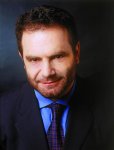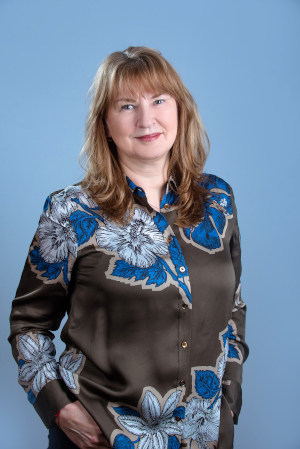- We seek immediacy and instant gratification.
- We demand 24/7 service.
- New channels featuring unceasing live coverage of world events, the likes of CNN, Fox News and BBC Worldwide, enjoy considerable popularity. A recent addition to the Live Coverage is the use of simultaneous scrolls of more information in text and numbers.
- More than ever before, we now consume fast food and microwave dinners (‘Eat and Run’ is a witty description used by James Gleik). On the street, we have coffee-to-go, and at home, instant coffee is by far the most popular kind of coffee drink.
- Amazon.com’s ‘One Click Ordering’ is a great success.
- The 1983 volume titled ‘One-Minute Bedtime Stories’ comprised of traditional stories in a condensed format. The Amazon.com catalog now has more than 160 books that have the expression ‘One-Minute’ in their title.
Missing out is physically inevitable. The Fear of Missing Out, on the other hand, is an emotional reaction. FoMO can be a good thing. It drives us to lead richer and fuller lives. However, to benefit from it we face several challenges:
- Develop the ability to deal with a wide variety and to choose.
- Lead complex lives and manage efficiently our attention, time and resources.
- To ‘Know what we want’ and to avoid the potential harms of FoMO such as indecision, lack of focus commitment or persistence, stress, frustration and chronically being late.
A survey I conducted in January 2001 showed that approximately 75% of adult Israelis experience FoMO to various degrees. 28% cope well (using the criteria listed above). The ability to cope well with FoMO positively and significantly correlates with financial success, Social success and high levels of life satisfaction. One can only speculate regarding the direction of causality.
The Origins of FoMO:
Underlying Processes
of Psychological and Social Change
We can view the changes in consumers’ attitudes and behaviors within a wide context of Cultural, psychological and social processes of change that occurred during the 20th century. These changes are characteristic to Western opulent societies.
An individual’s life in modern society, our lives in fact, is typified by several characteristics worth mentioning:
- We face a huge variety of choice options. The revolutions in transportation, communication and information are rendering the world more accessible. We are free to choose among different places to visit or live in. We encounter a large variety of people, cultures, worldviews and life styles. We face rich assortments in every aspect of life, including consumption. Furthermore, we are bound to make more and more life shaping choices: our leaders, spouses, and professions. Even the responsibility of shaping our identity is largely ours. We have the right and even the obligation to ‘discover’, define and develop ourselves. We choose from a wide Social-cultural ‘menu’ of identities. Social mobility through education and entrepreneurship is without precedent. The resulting development of human capability and the ability to cope with such a large variety and to choose from it what seems right for every individual (as well as the legitimization to invent new possibilities) is the most important and radical change of our time.
- The exposure to various possibilities evidently undermines our belief in absolutes, ‘an incontestable truth’ or ‘the right way’. This is the basis of post-modernity. Together with other processes, this fact has weakened Social structures and institutions as well as authorities. It gave birth to a new openness to the different, the other and the new.
- Due to the weakening of institutionalized sources of legitimacy, the individual faces ‘culture’, ‘society’ and even ‘the world’, without the mediation of a community. Our community is no longer unitary and significant. We define it in a flexible and changing manner. We take part of groups that are disconnected from one another and some of these communities are abstract or virtual. Our affiliation is temporary, in many cases.
- We have grown accustomed to a much faster tempo. "Technology has been a rapid heartbeat, compressing housework, travel, entertainment, squeezing more and more into the allotted span" writes Social historian Theodore Zeldin. In 1999, Agnieszka Winkler coins the term ‘Time Compression’. She notes that: "We are living in a sliver of time during which 10 years has redefined the concept of fast food from a drive-through McDonald’s to a 30 second microwave meal; nail polish dries in 30 seconds; photos are developed in one hour; and money comes out of street corner machines instantly. We have not said the word ‘computer’ yet! We no longer think of FedEx as a big deal. Even faxing is cumbersome. …".
- The fast pace of changes during the 20th century has eroded the status of tradition and ‘elderly wisdom’ in exchange for admiring novelty and worshipping youth. This is especially true in light of technological developments and the possibility of Social and Economic success at young age (in hi-tech or the stock market, for example). "Routinely, most of the truths a person over 40 grew up believing, are now questioned", writes Judy Lannon.
- Authors depicting the postmodern era claim that we live in a perpetual ‘now’ in which the past loses its value and the future is unknown. The focus is on the present, to which we are required to adapt quickly, emphasizing immediacy.
- Some theorists in psychology questioned the notion of one integral self. According to Gordin and Lindlof: "Destabilization of the self, is one of the characteristics of post-modernity… individuals may find that they no longer need a central core with which to evaluate and act". Therefore, they can afford to be a somewhat ‘different person’ each time, with different people, in different contexts. Kellner says: "Identity becomes more mobile, multiple, personal, self-reflexive and subject to change and innovation". Radical theoretical approaches describe a coalition of sub-personalities as an alternative model to the common concept of unitary personality.
Furthermore, let’s not forget that life expectancy has increased. "When life goes on for almost a century" writes Zeldin, "it is time to reconsider whether man wants to dedicate all of it to riding the same bus".
These developments and process forge a consumer (person) living in a new reality who has developed new characteristics. The emerging portrait is that of a person swept by an intoxicating abundance of options.




